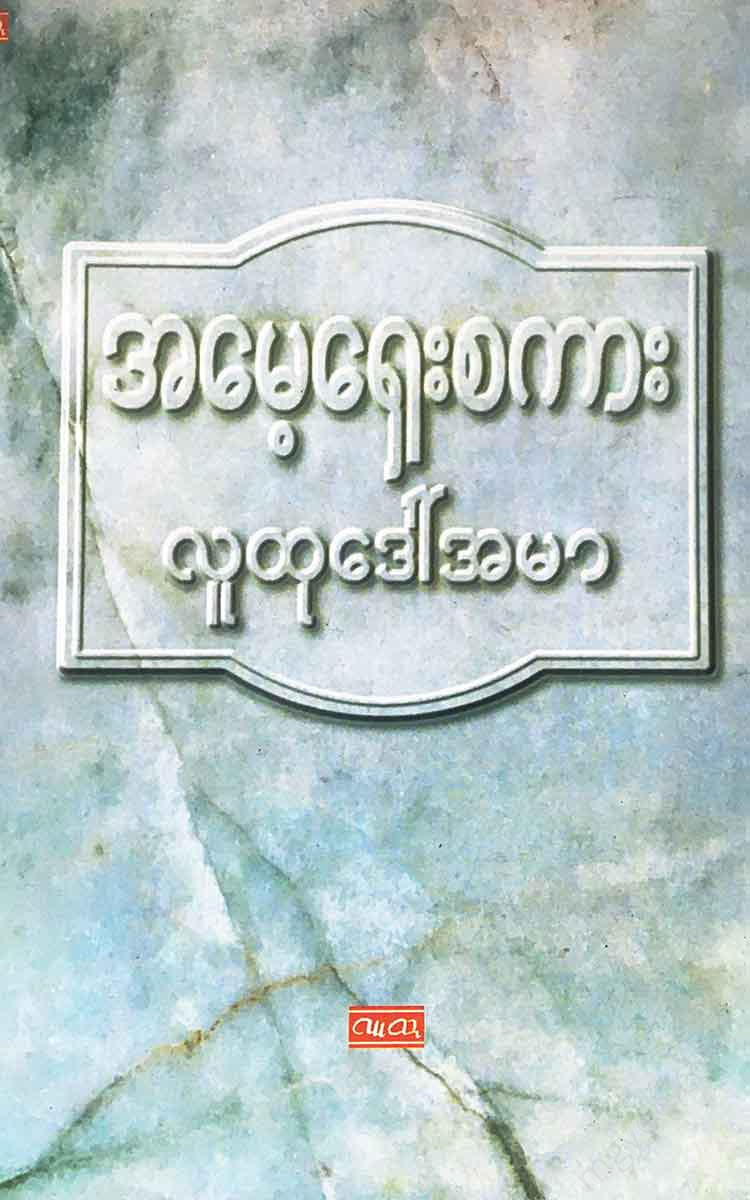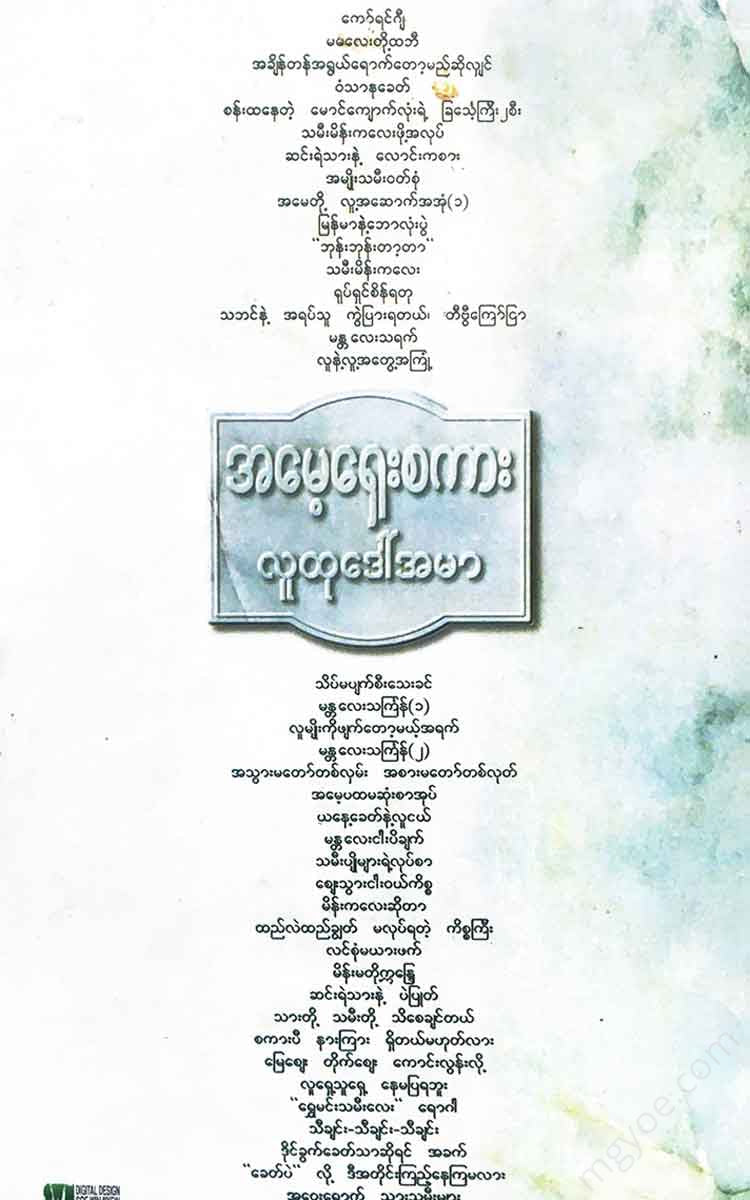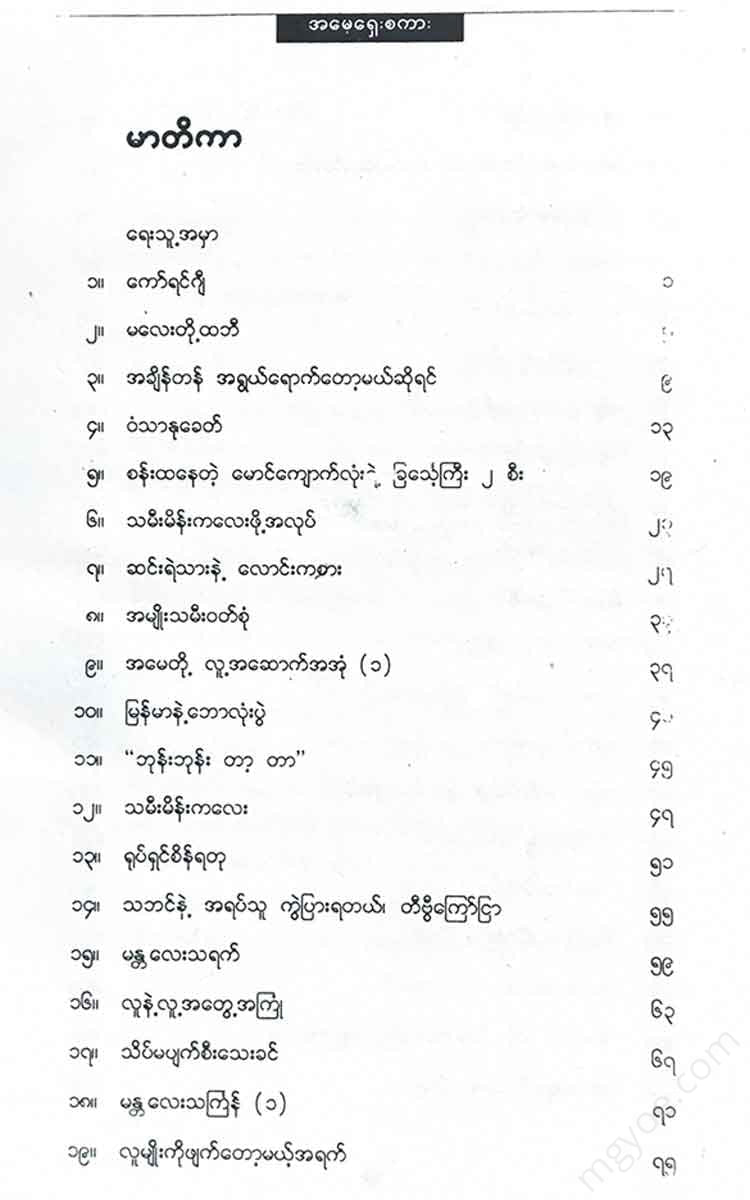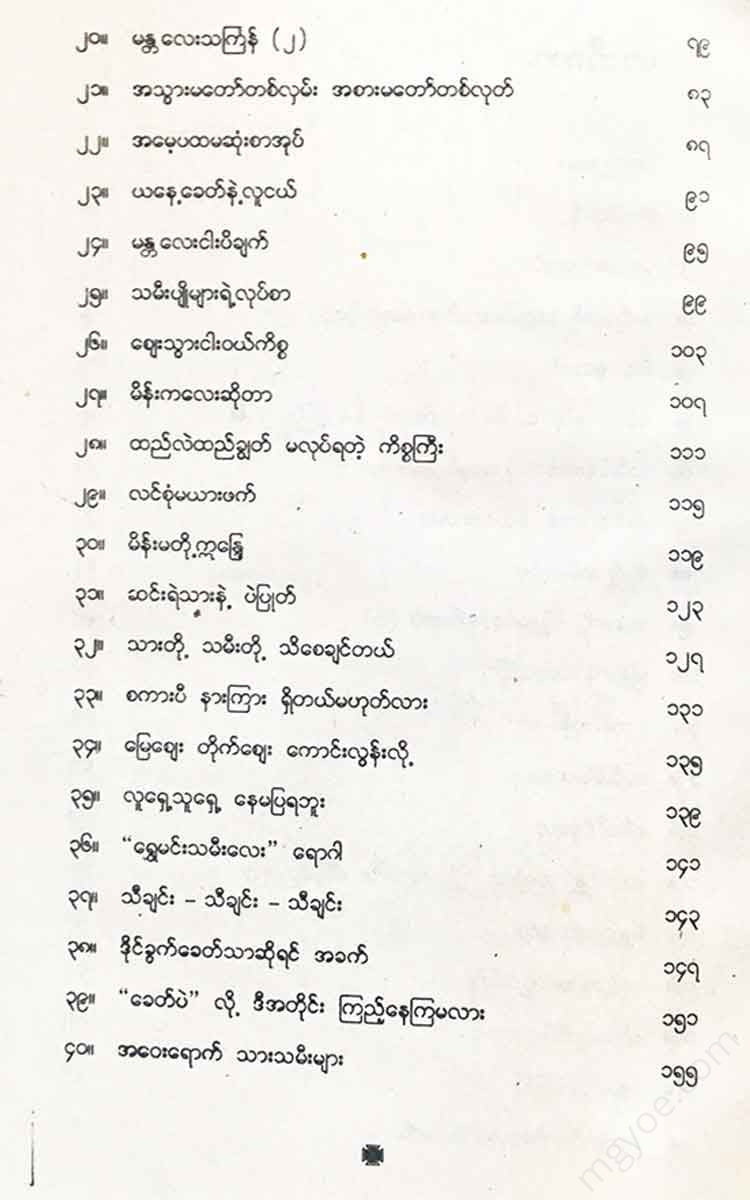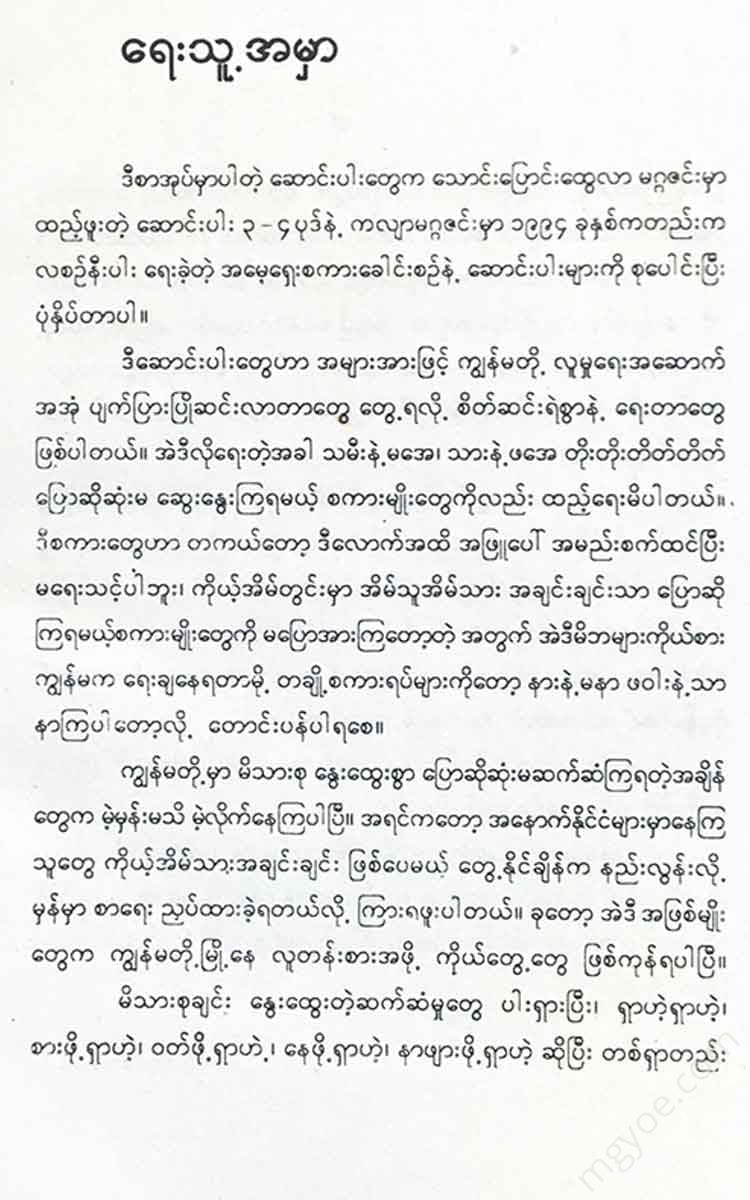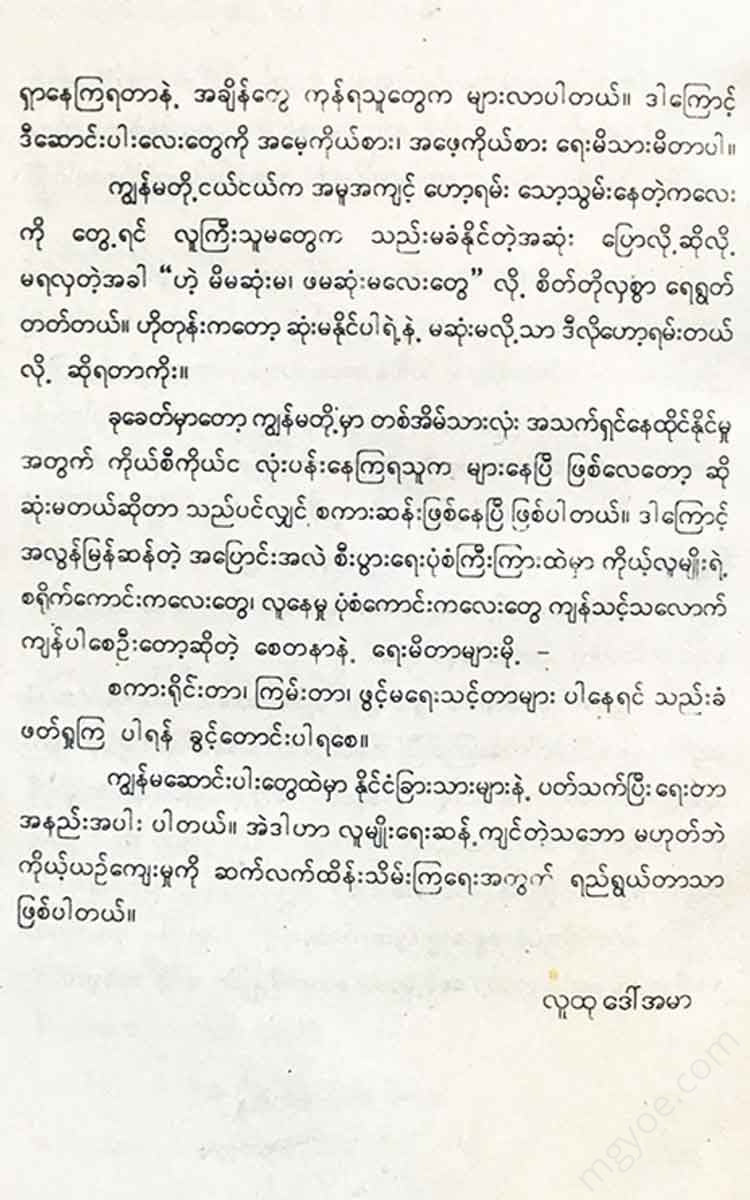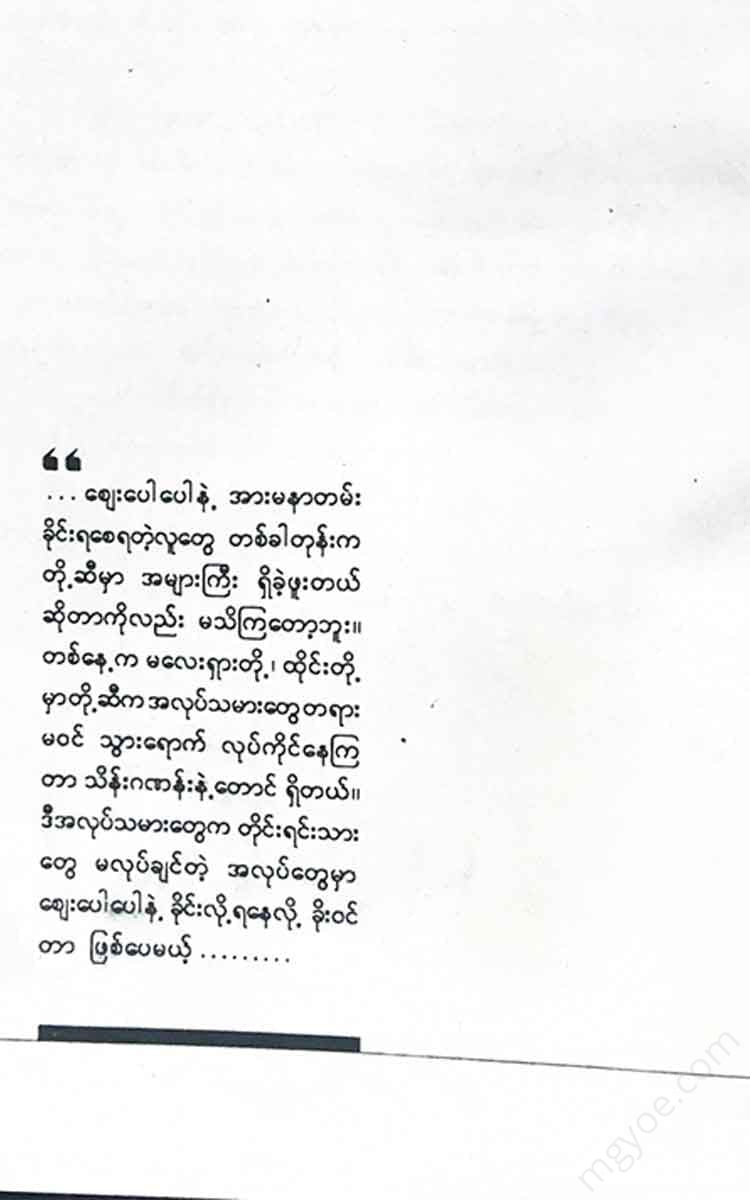Other Websites
Public Daw Ama - Mother's old sayings
Public Daw Ama - Mother's old sayings
Couldn't load pickup availability
Cornelian cherry
When my mother and I were young, my father was reading on the deck chair. My mother and my sister were playing at my father's feet. While we were playing, I don't remember what happened, but the sisters got into a fight. When the fight broke out, my mother scolded my sister, "You are Ganga's wife," and my sister scolded me back, "You are Appana's wife." My sister kept scolding me, "Appana's wife, Ganga's wife," and my father, hearing the words, beat me up.
My father rarely beat his children. But he was very angry and thought that he would be punished by his wife with children of this age. Every time, it was my mother who did the beating. This was the only time I had ever been beaten by my father. My mother and sister never dared to scold me since then.
Do you understand what your mother is saying? Appana, Gangaya, and Ganga are the names of the water vendors who sell water in our area.
In Mandalay, only a few neighborhoods used to use the water from the wells. The areas around the moat used the water from the moat. All the other neighborhoods used to use the wells. The wells there were also shallow, about 20-25 feet deep. Some wells were 30-40 feet deep. When the water from these wells was taken, filled with two (2) 4-gallon kerosene drums, and carried to the houses, if you bought it immediately, you paid 1 paise per bucket, and if you bought it monthly, you paid 1 paise per bucket per day, and if you bought it monthly, you paid 16 paise per month. The work of selling water was usually done by the Korinji Kula. That is why we understand the term “Panniwala” more than the term “Yeyagyi”.
When my mother was young, when the British era was in effect, Burmese people didn't want to do the work of begging for 1 cent per bucket of water. They didn't get paid for the hard work. That's why in the cities, the Koreyinjis sold water.
In offices, schools, and on the streets, the work of sweeping the streets is done by the Burmese. They are called “Jadu Wala”. In addition, in Mandalay, there are four-wheeled horse-drawn carriages called “Tram Lone”. The two-wheeled horse-drawn carriages that we have today are not called “Tram Lone”. They are called “Ming Hle Hle”. I think in some cities down there they are called “Bon Khar”. In Mandalay, there were hardly any horse-drawn carriages. There were only horse-drawn carriages on the streets. The work of driving these carriages was also done by the Burmese. They were called “Gali Wala”. At that time, there were no lan-chi in Mandalay. There were only in Yangon and Mawlamyine. Do you know who pulled the lan-chi? These are the Ko-ringjis.
Since they ride camel-drawn carriages, everyone knows the camel words: dina - right, aya - left, sitar - straight, aste - slow, jalati - fast, ho - stop.
When my mother and I went to the market, we never did the shopping ourselves. We called the child laborers who were carrying baskets in the market and shouting, “Sister, coolie, coolie,” and asked them to help us. They paid 2 cents for 1 pound.
Before World War II, in our country, we didn't do the kind of work that our people considered inferior. These foreign workers came to do it for cheap. We also hired them to do everything from cleaning sewage to planting rice. They came to work in our country by the hundreds of thousands and millions. They are even more abundant in lower Myanmar.
I don't know why they come to us because their country is so poor and they work so cheaply. But I will tell you how they live in our country.
A water carrier, a water carrier, came and said, “Please rent the house next to my sister’s house. I will pay (5) kyats a month.” The house was only a roof and had only one room, so the owner was happy to rent it. Even (5) kyats a month was free, and if the panniwala came, he would even give him a housekeeper. They put the tents in the tents. First, 2-3 people were in the house. Then 3-4 people, then 5-6 people, then 10-15 people. So many people came. I can’t even imagine how many people would sleep. Some of them even slept outside.
They work hard all day, and in the evening they come back after drinking the cheapest alcohol such as palm juice and dhani juice. In the room, there are people singing songs, people talking loudly, and some of them are not single, but have black wives. I don't even think about how these women and their husbands live in this small room.
They don't have any literate people. If they want to write back to their country, they have to pay a literate person from their own tribe to write. That person sits on the side of the road with a small table. They save whatever they earn and send money home once a month. They eat beans and chilies. They eat rice with beans, sprinkle salt, and chilies. When they finish a bowl, they put water in the bowl and wash their hands, and then they drink the water from the handwashing basin, not throwing it away. They gargle and swallow it, not letting a grain of rice go to waste.
Sometimes, when he has a lot of money, he goes back to India. He doesn't go back for a while, he goes back for a while. When he goes back, he hires a co-worker who can pay his wife if he has a wife. For a certain amount of money per month. He takes the rent, and when he comes back, he takes his wife back and remarries.
When the world war broke out in our country, these migrant workers fled back to India. It is not known how many returned or how many died on the way. Most of them had to return by land on foot.
After the war, these workers were no longer accepted in our country. So, after the war, young people don't know about the Koryinji workers. They don't know that there were many of them who were forced to work cheaply and without any effort. One day, there were hundreds of thousands of workers from our country who were illegally working in Malaysia and Thailand. These workers were smuggled in because they were forced to work cheaply in jobs that the ethnic people didn't want to do, but when I heard the news that they didn't want to go back, my mother was furious.
Kalya Magazine, No. 108, February 1994
...so the population is
A little child, the country
Above and below the ground
The abundance of natural resources,
We have gained independence, everyone.
Bend and straighten
What if the country is founded?
In the long run, our country and our people
Live and eat well.
We must become a nation that can drink.
Okay…………..
Ladies and gentlemen,
When I was young, I lived in the slave era. So, my mother, although the country is Myanmar, many people come and go, and if there are many people in the big cities, I think that our people are a minority. There are so many foreigners. Especially in Yangon. There are so many blacks and Chinese. You can't live in the city center. Burmese are only in the outskirts of the city like Kyimyindaing and Sanchaung. In addition to the Chinese blacks, there are also English and other white people.
At that time, our people lived in our own country, in our own homes, but they were small. We felt like second-class citizens even though we were in our own country.
Not all the big jobs are in our hands, the foreigners are monopolizing them. We live a life of sharing everything.
Even though we are called low-class laborers, our people are not allowed to work. We are forced to hire cheap laborers from India by the millions. So we are not hungry, our country is rich and prosperous. However, our people do not enjoy the same prosperity that foreigners enjoy. We are content with our lives as slaves.
Then, patriots who have opened their eyes, why should our people call those who came to us and suck our blood, “Thakin”? We can’t call them that. Our people are the true Thakin people, the true Thakin. That’s why we put the word “Thakin” in front of our name - “Burma is the land of Do, Burmese is the language of Do, Burmese is the language of Do,” and so on, we took back the status of our people, raised them up, and worked hard to get them back to their rightful place. At that time, when we wrote, we didn’t write “Thak” because we wanted to have a strong sound, but wrote “Do” with a dash.
I still remember, young people wearing short robes, short tunics, sandals, and with fists raised, we fought for freedom from the foreign bloodsuckers who had invaded and manipulated our motherland. The oppressors arrested us, imprisoned us, and we continued to fight, shouting, "We consider prison a mosquito net!" even when we were arrested.
At that time, we were able to stand shoulder to shoulder with the people who were exploiting us economically and fight to regain our rights. We had a high-level culture. We had a high-level social structure. We had a high-level religion. We were not a nation that gave and received food and water with love. We were also able to fully and firmly maintain the national spirit that we were not a nation that was just a nation.
World War II broke out, the British who had enslaved us had to flee our country, and the fascist Japanese who had enslaved us for 3 years and 3 months were defeated. Throughout that long period, our people did not stop fighting for freedom. They continued to fight. Thus, in 1948, our people and our country gained independence.
So, the population is small, the country is rich in natural resources, and we have gained independence. If we all unite and establish a united country, what will happen? Our country and our people will become a nation where we can live and eat well. We are happy. We will be able to create our own destiny.
More than forty years after independence, some of our girls no longer wear turbans. They wear shorts, long pants, and skirts. They don't wear them for sports.
When I was young, my mother and two other high-ranking women, the wife of a certain woman, did not wear flip-flops. They wore ladies' shoes. They would criticize me, draw cartoons and ridicule me, and their wives would sneer at me. Even though I was a woman who earned five thousand won, no one's daughter would wear pants. Five thousand won was what they used to call a minister in those days. The minister's salary was 500 and nine. The teacher's salary was no more than 9 or 10 times that.
Now, the girls on the covers of magazines, the girls in calendars, and the girls in movies and videos no longer have a skirt around their waists.
In the past, there was a big gap between the city and the countryside. Nowadays, thanks to videos and TVs, there is no gap in clothing. A girl who came to work at my mother's house, her village is not far from the Kyunchaung Fertilizer Factory, and she wanted to wear a skirt and long pants. When my mother begged her not to wear them, she left a pair of long pants and a skirt in the village. She said she had one of each.
I don't know if it's because my mother is an old woman. I think Burmese girls are beautiful when they wear a small turban around their waist. Otherwise, I think we will lose our ethnic identity and national identity when we reach a point where we can't tell whether we are Chinese, Japanese, Filipino, Indonesian, or Thai women.
Last Thingyan, there were a lot of girls in Mandalay who were splashed with water while wearing pants. I can't say for sure whether they were Burmese girls or Chinese girls.
How can we, mothers, do this? We didn't see this kind of scene in the era of calling for a lord or a master, and now we see it in the era of greed.
Kalya Magazine, No. 112, June 1994
